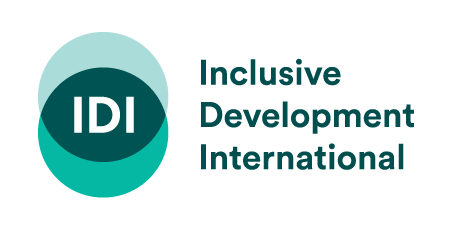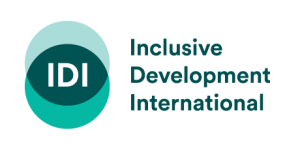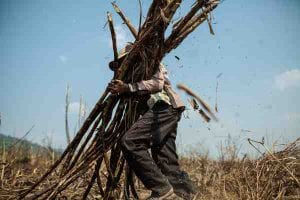(Washington, DC) The World Bank has released new draft safeguard policies that will vastly weaken protections for affected communities and the environment at the same time as the bank intends to finance more high-risk projects, 19 organizations said today. The proposed new Environmental and Social Safeguards Framework pointedly contradicts World Bank President Jim Yong Kim’s commitment to ensure that the bank’s new rules will not weaken or “dilute” existing mandatory environmental and social protection measures and calls into question the extent to which the bank has responded to public input.
In addition, the proposed new framework will not cover substantial sections of the World Bank‘s portfolio, including rapidly disbursing policy-based lending for environmentally and socially sensitive sectors. Despite repeated requests, the bank has also failed to make public a detailed budget for the implementation of its proposed plan.
The independent environmental and human rights groups are: 11.11.11. (Belgium), Alyansa Tigil Mina (Philippines), Bank Information Center (USA), Both ENDS (Netherlands), Bretton Woods Project (United Kingdom), Center for International Environmental Law (USA), Derecho Ambiente y Recursos Naturales (Peru), Forest Peoples’ Program (UK), Earthlife Africa (South Africa), NGO Forum on ADB (Philippines/Regional), Gender Action (USA), Human Rights Watch (International), Inclusive Development International (USA), International Accountability Project (USA). International Trade Union Confederation, Oxfam International, Re:Common (Italy), ‘Ulu Foundation (USA), Urgewald, (Germany).
“Clear and mandatory requirements, incentives, accountability structures and a detailed budget are lacking in the proposed new framework” said Korinna Horta of Urgewald in Germany, “yet this is what we urgently need if we are serious about addressing the interconnected problems of poverty, climate change, deforestation and biodiversity loss.”
In July 2014, the bank released draft safeguards that proposed a massive dilution of existing protections for environmental and social issues under the current safeguard policies. Bank Vice Presidents, academics, United Nations experts, civil society and community organizations expressed strong opposition to the document.
“The new draft rolls back the bank’s due diligence requirements, removes mandatory timing and procedural requirements for borrower compliance, and effectively dismantles thirty years of environmental and social protections for affected communities,” said Stephanie Fried of the ‘Ulu Foundation, a US environmental organization. “The release of this draft shows that bank management has directly undermined President Kim’s public commitment to ensure no weakening of environmental and social protections.”
Despite the World Bank’s widely-publicized commitment to ‘turn down the heat’ and close the $70 billion climate finance gap, not only does the new proposal remove protections for forests, biodiversity, and forest dependent peoples, but the newest draft of the climate safeguard lacks a crucial component: “By eliminating the threshold for greenhouse gas (GHG) emissions accounting and moving it into the non-binding ‘guidance notes’, the bank is allowing borrowers to opt out of climate safeguards and avoid the much needed accounting for carbon pollution as first step to dealing with the climate change crisis,” said Makoma Lekalakala of Earthlife Africa in Johannesburg.
“The bank proposes replacing its own mandatory safeguards and accountability mechanisms with vaguely worded aspirational standards and an over-reliance on borrowers’ national systems, and even those of opaque “financial intermediaries”, said Cesar Gamboa from Derecho Ambiente y Recursos Naturales in Peru. “At the same time, the bank proposes to allow the use of ‘preventative’ violence by security forces. This risks sparking a sharp increase in risk to local communities.”
The second draft includes some improvements on the 2014 draft – for example, new language on labor, indigenous peoples, and differential analysis of the needs of particular vulnerable groups, clarifying that assessments must examine differentiated impacts of projects on specific groups rather than on disadvantaged or vulnerable groups as a whole. Yet, the draft does not consistently ensure, throughout all standards, that unique impacts of projects on each disadvantaged or vulnerable group are differentiated to prevent harm to these groups and leaves some key groups out, including those discriminated against on the basis of political or other opinion and language. According to Elana Berger from the Bank Information Center, “the involuntary resettlement standard does not clearly state how disadvantaged or vulnerable groups’ needs would be addressed, which is necessary to ensure accessibility and inclusivity for all of those affected by the project.”
Peter Bakvis of the International Trade Union Confederation (ITUC) indicated that the draft policies include some improvements pertaining to labor rights, but unlike the safeguards of other institutions, “the new draft does not require full respect for workers’ rights. Respect for rights to freedom of association and collective bargaining are only required if these rights are already fully protected in national law – which is not the case in many countries. Other financial institutions make these rights a mandatory requirement notwithstanding national laws. Furthermore, the new draft policies still do not reference ILO core labor standards,” he said.
Jessica Evans, senior advocate and researcher on international financial institutions at Human Rights Watch, said that the new draft policies of the bank do not require bank-supported activities to respect human rights and to not contravene a borrower’s international human rights legal obligations. “The draft treats human rights as merely aspirational, rather than binding international law,” Evans said. “The bank’s refusal to require respect for human rights, despite pleas to do so from communities around the world, sends a message to its own staff that respect for rights is discretionary.”
Rayyan Hassan of NGO Forum on ADB says that the World Bank dilutions clearly raise a red flag for safeguards at all international financial institutions (IFIs) as there is “a clear intent to push responsibility to potentially weak and inadequate borrower systems while eliminating the bank’s mandatory due diligence requirements to ensure that borrower environmental and social protections are at least as strong as and equivalent to those of the bank. Unlike the bank’s draft ESF, current ADB safeguards policy language has binding requirements on the ADB, itself, to ensure safeguards delivery and, importantly,” according to Hassan, “the ADB requires 120 days of public comment on all Environmental Impact Assessments, which has been removed in the World Bank’s new ESF. The ADB must approve all category A subprojects among Financial Intermediaries, a requirement absent from the WB ESF. The ADB safeguards are a result of decades of mass social movements across Asia in response to harm to communities and the environment in the absence of mandatory safeguards. This current dilution of the WB standards jeopardizes communities and the environment across Asia and sends the wrong signal to all IFIs about safeguard standards. We urge the CODE to assess the repercussions of the 2nd draft and correct course immediately,” said Hassan.
Kate Geary of Oxfam emphasizes the implications of the draft framework for land rights: “Recent internal audits have laid bare the World Bank’s appalling track record when it comes to protecting people moved from their homes and livelihoods as a result of Bank-funded projects. The draft does little to ensure that these problems will be addressed, as the Board will be asked to approve projects that cause displacement even before resettlement plans and budgets are in place.”
David Pred of Inclusive Development International added, “The proposed resettlement standard denies millions of people who will be impoverished as a result of mega-dams and other infrastructure projects their fundamental rights to have their livelihoods restored and share in the benefits of development. This is a guaranteed recipe for exacerbating inequality.”
The proposed framework is not consistent with the bank’s stated goals of promoting “shared prosperity and ending extreme poverty” and “sustainable development.” The dilutions and other problems outlined here must be corrected before the final approval of the proposed new framework, which is currently scheduled for the end of 2015.
The World Bank’s second draft safeguards framework is available here.
More information about IDI’s campaign to strengthen World Bank safeguards on land, resettlement and human rights is available here.


